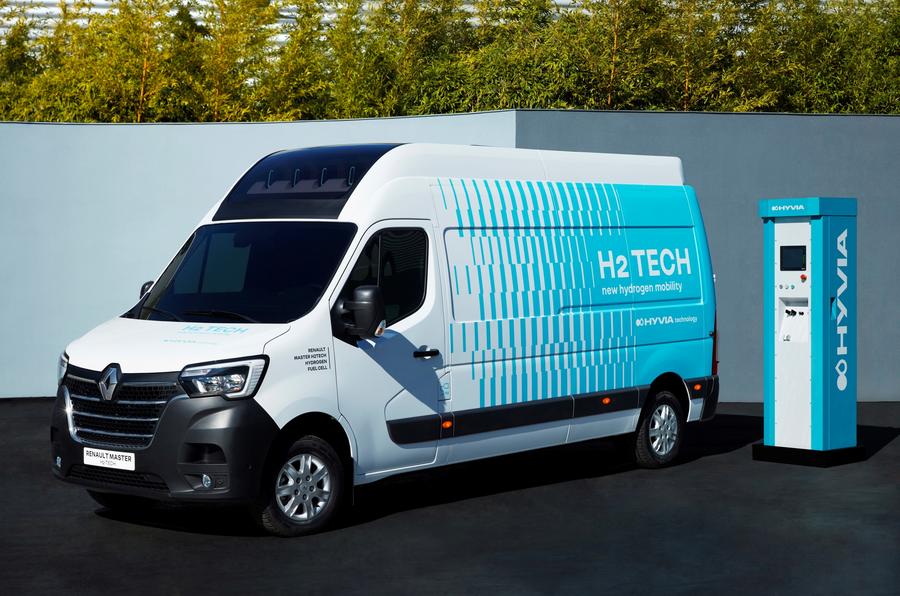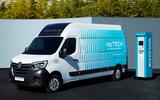HYVIA - a joint venture between the Renault Group and turnkey hydrogen company Plug Power - has revealed a prototype version of the Renault Master van that will go on sale next year.
Featuring a 30kW fuel cell and 33kWh battery, the Renault Master Van H2-Tech offers 12 cubic metres of cargo space and up to 310 miles of range. Refuelling is said to take no more than five minutes, similar to the combustion-engined vehicles of today.
The van contains four pressurised tanks and each will hold 6kg of hydrogen. To complement its creation, HYVIA has also unveiled a prototype refilling station that "will be available to purchase, lease or rent".
"I am proud to unveil our first hydrogen prototypes,” said David Holderbach, the start-up’s CEO. “HYVIA, it’s about hydrogen mobility solutions for a tailor-made offer to our customers to meet the challenges of hydrogen mobility. HYVIA will be able to deploy its entire ecosystem in all territories and professional fleets for carbon-free mobility. HYVIA is moving fast, bringing together the strengths and skills of two leaders: Renault Group and Plug Power.”
Further prototypes are in the pipeline, based on the Chassis Cab and Citybus variants of the Master van. The former will deliver 19 cubic metres of cargo space and 155 miles of range, while the latter will provide a 186-mile range and capacity for up to 15 passengers.
The prototype van was built at Renault’s plant in Batilly, but the integration of the hydrogen powertrain was conducted by PVI, a subsidiary of the Renault Group. The motor is produced by the Cleon plant and fuel cell assembly will begin at the company’s facility in Flins by the end of 2021.
The hydrogen filling station is designed to showcase what HYVIA calls a "complete hydrogen ecosystem" for production and distribution, with fuel either generated on site using water electrolysis or supplied in bulk via trailers.
Earlier this week, Volvo provided further details on a collaboration with steel manufacturer Ovako that will use excess hydrogen from the firm’s new, low-carbon production processes to power local fuel cell vehicles.














Join the debate
Add your comment
Desperate!
Features a battery about 30% of the size it would need to achieve that range on electric power only and needs that battery as it can only get 35bhp out of the fuel cell.
Furthermore having driven 300 miles that chances of being able to find a plug are somewhat higher than the chances of being able to find hydrogen! All to save a few minutes compared to charging, a task which doesn't require supervision and hence isn't really time consuming.
Another Hydrogen article that'llwill never be seen on the road. As to 4 6kg tanks to go 310 miles, that's £288 for van to do just 310 miles using manufacturers figurers. Real world will be worse, if that's possible.